With all these conveniences and complete connectivity, technology has significantly taken up a vast part of our daily lives. While much has become easier nowadays compared to the old way, recent advances have proved hazardous factors in rising mental tension levels. Constant notifications, digital multitasking, information overload, and pressure to keep abreast of news from different social media sources cause anxiety, stress, and burnout. In reality, the more we are addicted to using our gadgets the harder it is for us to detach and charge ourselves again.
With constant social media pinging to being always on for work or personal issues, our brains shift constantly between tasks, leading to cognitive fatigue. The rise of social media has also fueled the “Fear of Missing Out” (FOMO), creating a constant comparison cycle that leaves many inadequate or overwhelmed. Furthermore, excessive screen time-even before bed-may affect sleep patterns, agitating mental and physical health issues.
But hope is there. On the blog, we elaborate on how technology adds tension to our mental condition and how best to fight it back. It’s just being able to set bounds over screen times or curate what comes in your feed, or adding mindfulness and exercising into your routine-there are so many ways to take back control of your digital life. Key Practices: Taking time for digital detox, switching unnecessary notifications off, and learning how to stand in moments of stillness reduce the stress of everyday life. All these can break your persistent mental noise from technology and create space for relaxation, attention, and personal care.
We are living in a world dominated by technology. From our smartphones and social media to email and apps, we are now connected more than ever. In many regards, technology has greatly benefited us-time-saving tasks, connecting with loved ones, and having the access to information at our fingertips. However, technology also turns out to be a major source of mental tension. We are living in a time where constant notification, digital multitasking, and information overload are surmounting costs that our mental well-being pays.
Sometimes, we come to realize that those particular tools developed to make life easier may become the very tools causing us more stress, distraction, or even overwhelm.
In this blog post, let’s get down into how technology increases mental tension and share some strategies about how to fight this off.

The Hidden Costs of Connectivity
A phone used to be something to communicate with, and a computer only used for work or daily duties. These gadgets now have become portals to the most varied functions; entertainment, socializing, shopping, news, and mental health services, and the mere number of apps and platforms which we interact daily might sometimes be oppressive, leaving little time for mental relaxation or reflection.

Constant Notifications and Information Overload
One of the biggest causes of mental tension is constant notifications. Be it social media posting, an email reminder, or breaking news headlines, devices are constantly clamoring to get your attention. Other studies have shown that on average, one checks his or her phone 58 times a day. During each incidence, the attention is shifted away from what one was originally focusing on. Such distractions are interruptions to our stream of thought and would make it very challenging to focus on important tasks, raising stress levels.
Information can even blow our minds. There is so much news we hear of daily, from advertisements to social networking, contacts, and so much information that sometimes leaves us in a dilemma over what to decide or feels anxious and confused. This is one way of describing what people call information overload or the state where people get mentally fatigued and always feel a step behind.
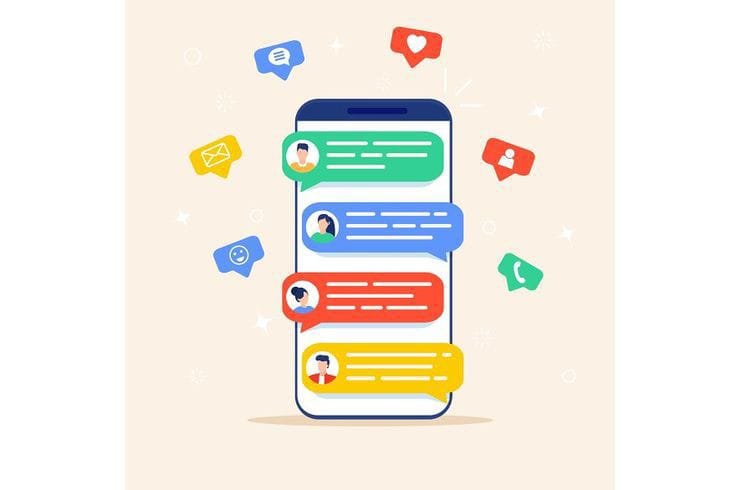
Risks of digital multitasking.
Most of us have developed the habit of multitasking because of so many things and apps competing for our attention. Managing multiple activities at one time, which, in some cases, could be sitting glued in front of the computer while watching a video, texting while preparing dinner, or scrolling through social media while working, is very routine these days. Well, researchers have found out that, indeed, multitasking does not make people more productive but may cause mental fatigue, lower cognitive performance, and increase stress levels.
Then there is the process of multitasking, which also means changing between tasks at regular intervals, thus creating tension because the brain has to refocus. This constant changing between tasks can leave one feeling mentally drained and anxious about their performance. The pressure of catching up with work, personal life, and the trends on social media can add to mental tension and make us feel that we have not really done much.

Social Media and the Fear of Missing Out (FOMO)
Social media takes the cake when it comes to the main causes of mental tension in recent years. Social media sites such as Instagram, Facebook, Twitter, and TikTok continue to be woven into our ways of communication, experiences, and intake of information. For example, even though these avenues opened up accessibility and bonding, they also caused anxiety and mental tension.
A never-ending tension from the comparison emerges through social media, where users produce their portion of life, no doubt omitting some of the less glamorous or intriguing parts. In such cases, one would relatively easily feel a sense of “missing out,” especially when another’s life seems interesting and more fulfilling. FOMO has been linked with anxiety, depression, and decreased self-esteem, particularly in the younger population most actively using social media.
That is actually the case for most social media sites; they employ algorithms that keep you on for as long as possible. They prefer mainly the post which is likely to provoke the finest possible reaction: either pleasure, outrage, or fear. End Associate with all these emotional lights, coupled with the pressure to reply or comment, may significantly heighten levels of stress and lead to mental exhaustion.
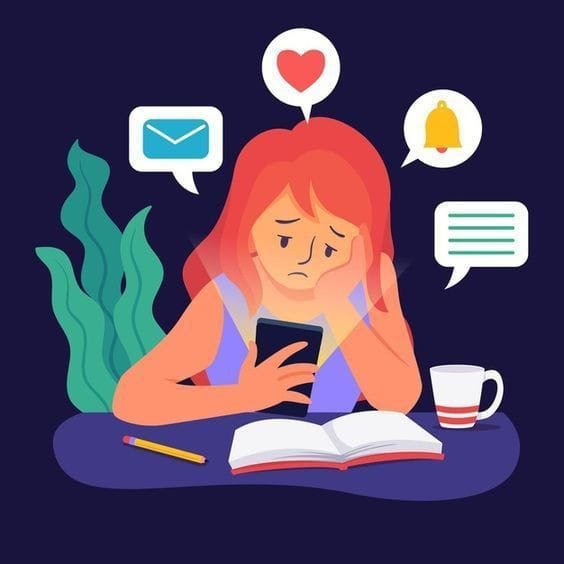
How Technology Affects Sleep
In a world of technology, it has made its toll to our sleep as well. To explain this, it’s basically because the blue light of smartphones, tablets, and computers violates our sleep because it kind of infringes on melatonin production-the hormone that controls sleep. And so with that, it makes it harder to fall asleep, which affects the quality of rest.
Not least, using these devices all the time pushes us into a state of urgency, even when we should be unwinding for the night. Checking a few emails or scrolling down social media before sleep may not let the mind disconnect from what’s happening out there, bringing a great sense of anxiety and tension. Chronic sleep deprivation has its toll on exacerbating stress, meaning it makes matters worse for individuals to handle regular activities throughout their day.
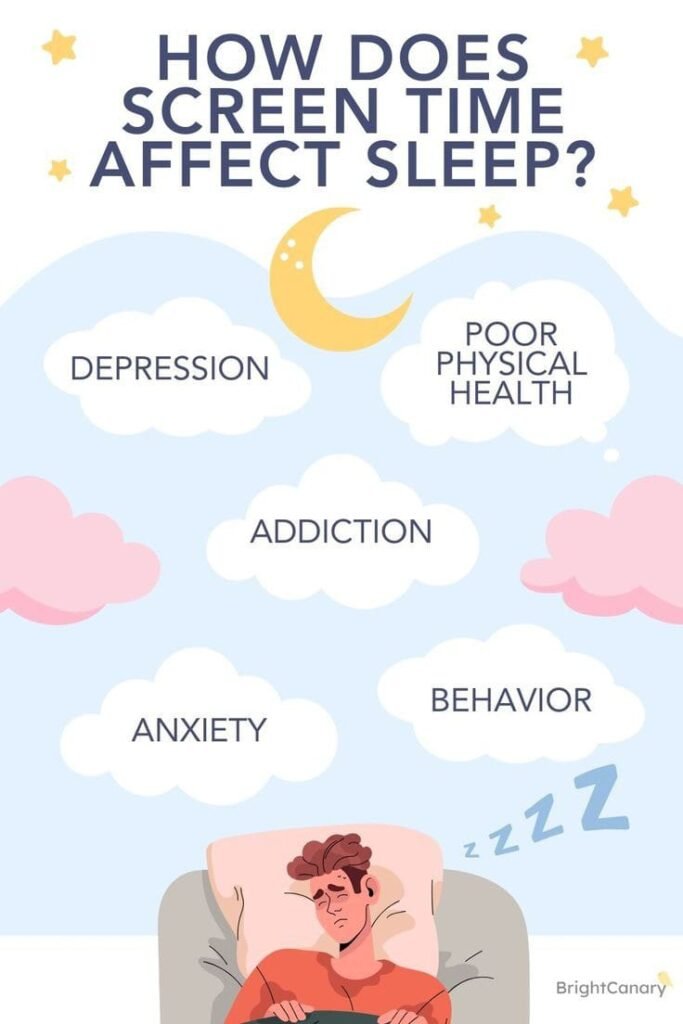
The Psychological Effects of Technology
In addition to the direct physical effects, technology use may still have psychological effects. The line of validation in the form of social media likes, comments, or shares can leave one feeling worthless if validations don’t come in as “expected.” The pressures to “keep up” with the rest of the world as it takes off at a frenetic pace introduces performance anxiety and feelings of inadequacy.
At the same time, cyber false information and sensationalized headlines become the cause of increased fears and anxieties about the state of the world. “Doomscrolling,” or the never-ending sensations of having to be alert or constantly being informed, intensifies mental illnesses like anxiety, depression, and stress.

How to Counter Technology-Related Mental Tension
Technology can definitely cause mental tension. But still, there are certain strategies which you can adopt to deal with such unwanted effects of technology. Here are a few practical ways by which one can reduce mental stress brought about by technology:

1. Setting Boundaries for Screen Time
One of the first responses to counteract mental tension is to limit the amount of time spent on devices every day. Screen tracking apps can help monitor and keep your digital addiction levels at bay from your smartphone. Try designating times of the day when you check your emails, social media, and news, rather than letting it consume your day.
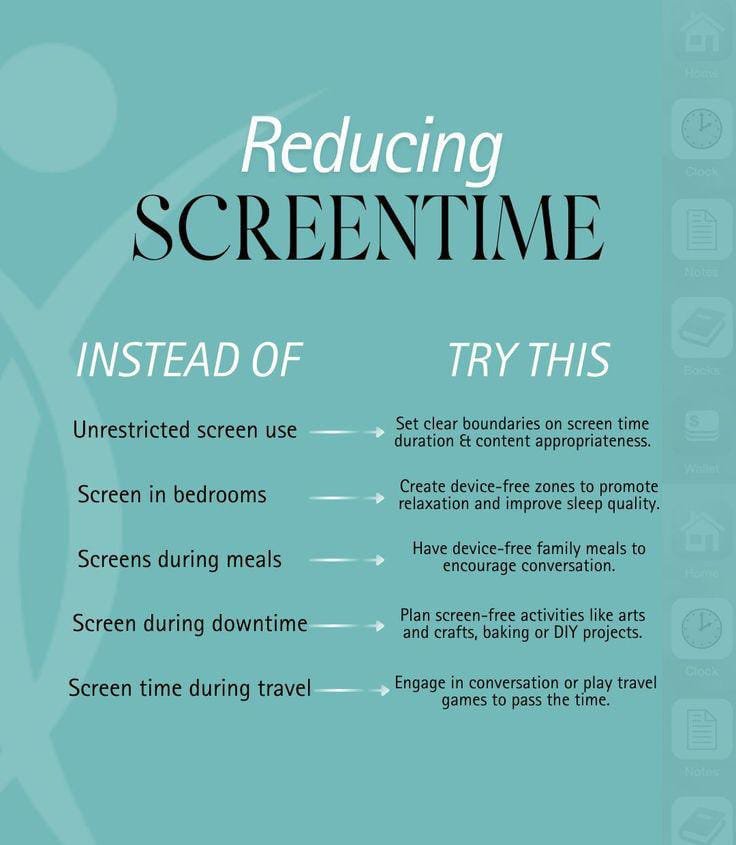
2. Technology-Free Zones
Another good strategy is to put zones in your home that are no-tech areas. For example, make your bedroom a no-screen zone and do not even take your phone or tablet to bed. This creates that boundary between work and rest, where the mind can disengage from the digital world and get some much-needed rest.

3. Use Mindfulness and Digital Detoxes
Mindfulness practices can prove to be super useful in reducing psychological tension caused by technology. Regular mindfulness meditation can really help you anchor on the present moment instead of getting derailed by the never-ending flow of notifications and pieces of information. Similarly, schedule regular digital detox days or weekends where you intentionally disconnect from all electronic devices to reset your mind and recharge.
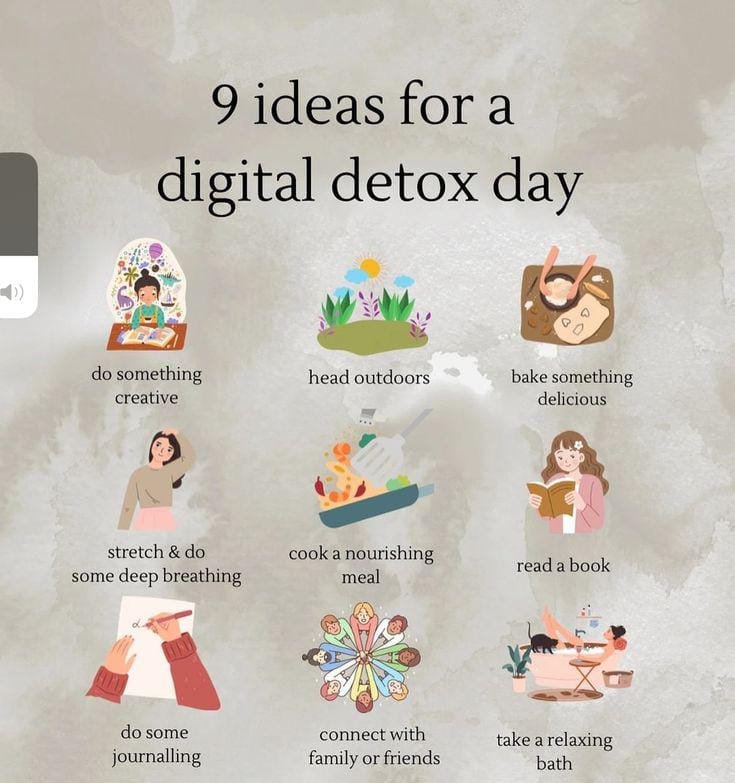
4. Turn Off Notifications
One can desensitize himself by turning off non-essential notifications on his devices to avoid the constant distractions coming from the incoming notifications. This reduces mental pressure to respond immediately and gives more space for concentration on priorities without constant interruption.
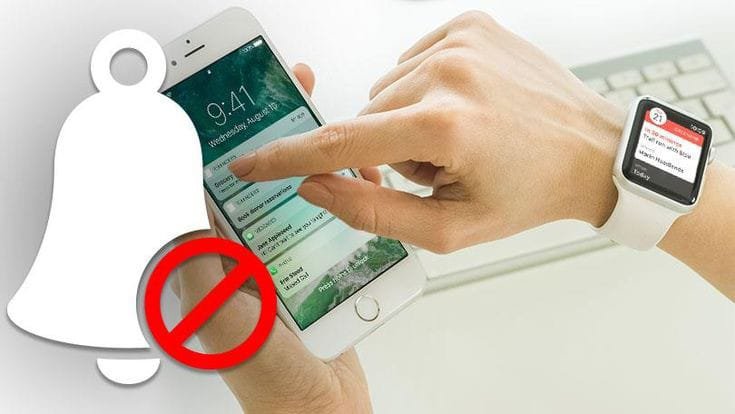
5. Physical Activity
Examples of physical exercise include walking or doing yoga and exercise reduce the amount of psychological stress caused by technology. Exercise reduces stress hormones such as cortisol, increases endorphins, which will enhance mood and also general well-being. In addition, regular physical activity will enhance their sleep, thus it will make it easier to disconnect the screen at night.

6. Curate Your Social Media Feed
Take control of the social media experience by determining what you are consuming. “Like” the pages and accounts that inspire and calm you, and “unfollow” or “mute” the content that makes you feel bad or anxious. You may even find it beneficial to take regular breaks from social media to clear out your mind and start regaining a little balance with how you think.

7. The Art of Doing Nothing
Finally, probably the most simplest but most effective way in reducing tension in the mind is the art of doing nothing. Let yourself just sit there in silence, go for a stroll without checking your phone, or just enjoy a moment of quiet reflection without the distractions of technology. These moments of stillness help you to restore balance and provide your mind with space, which helps it relax and recharge.

Conclusion
While technology has many advantages, its effects on our mental well-being cannot be ignored. Keeping up with the stream of notifications, always multitasking digitally, comparing ourselves to others on social media, and information saturation are all factors that can contribute to higher mental tension. Being aware of our habits regarding technology and adding settings like boundaries, mindfulness, and physical activity are just a few things that could help us control the mental tension that our digital world creates for us. In this respect, we can use technology to advance our lives instead of letting it brain wash us.




















+ There are no comments
Add yours